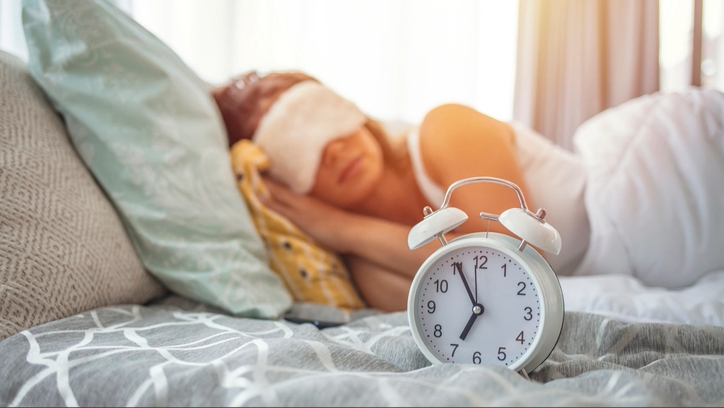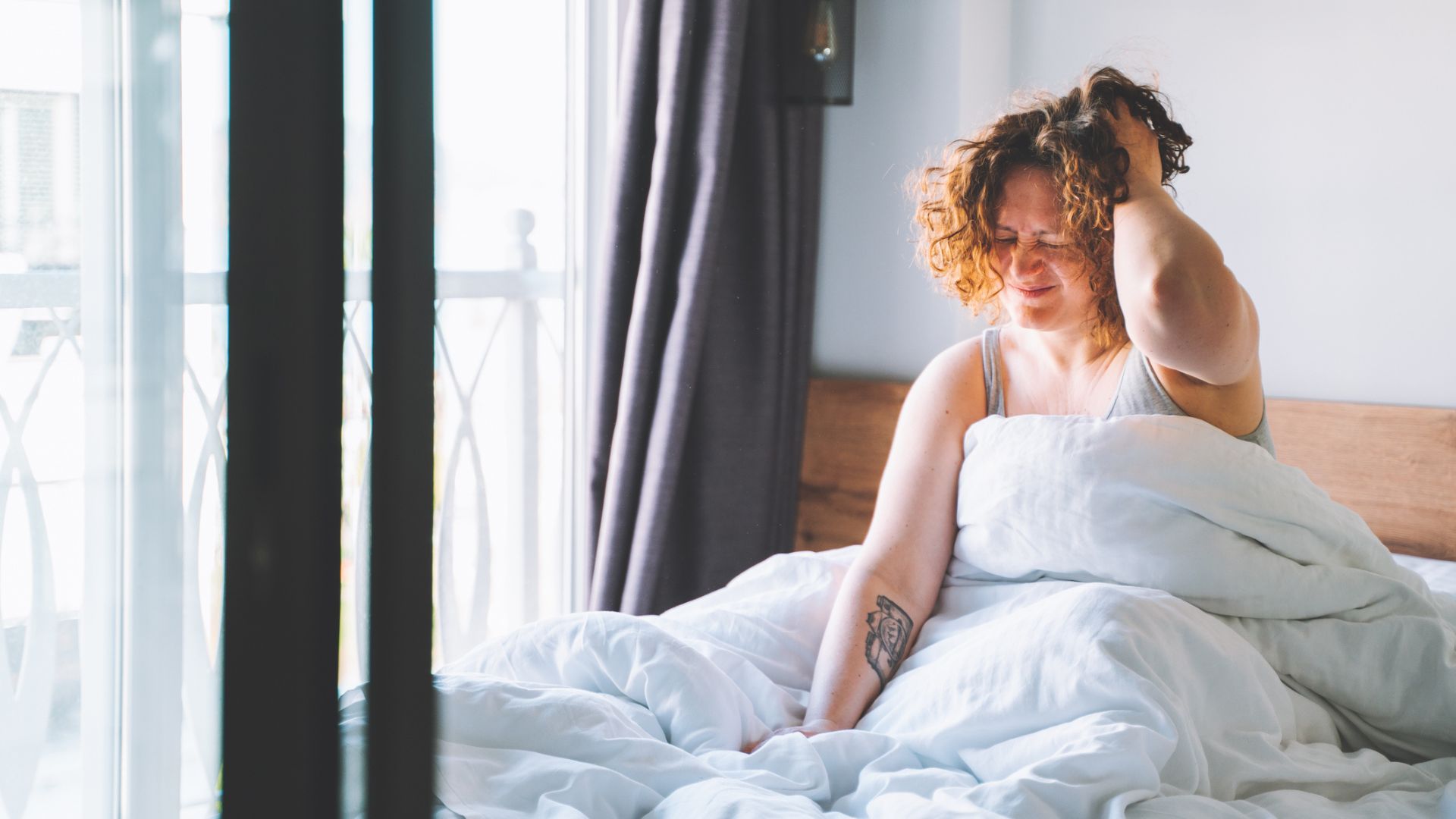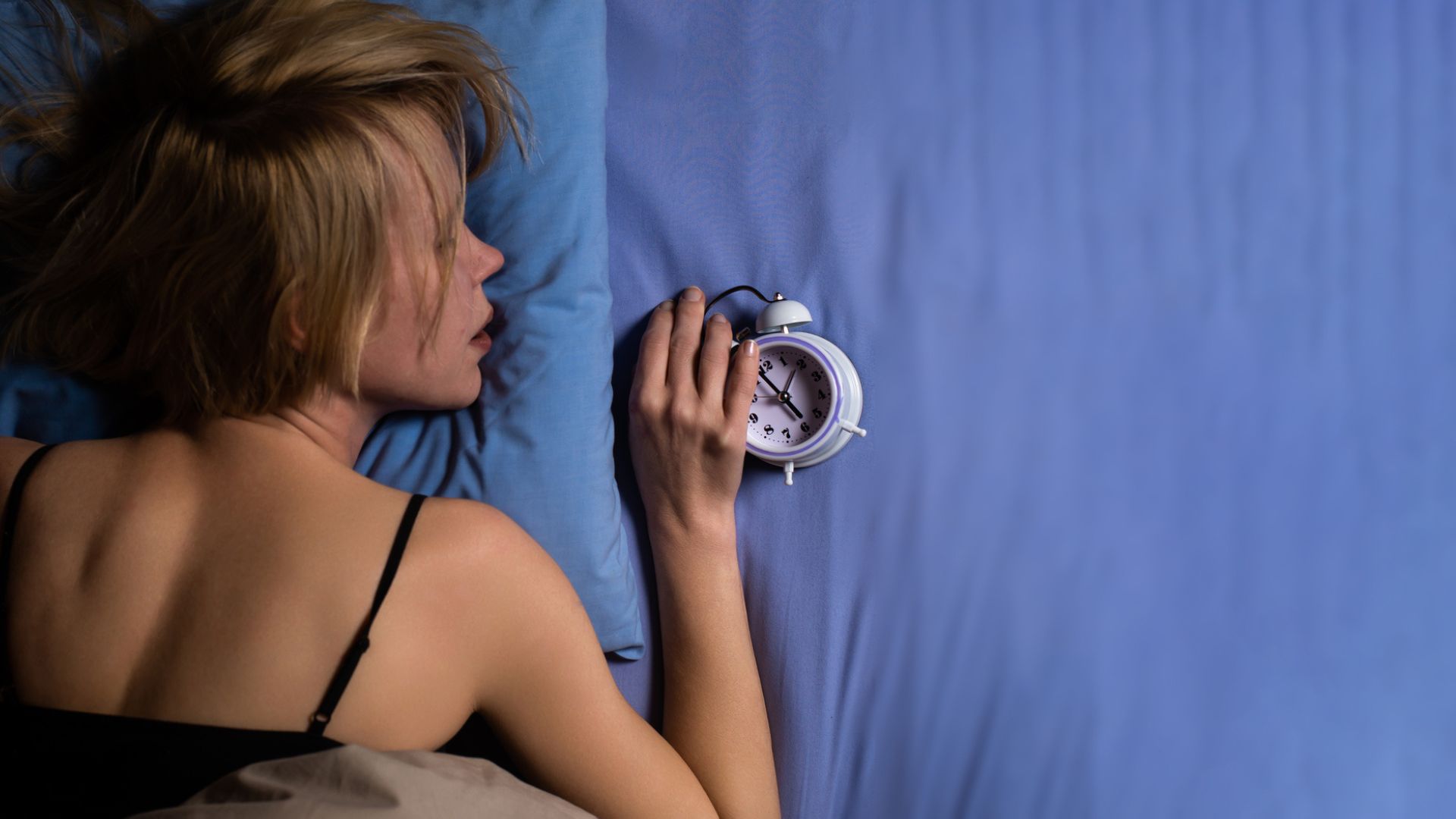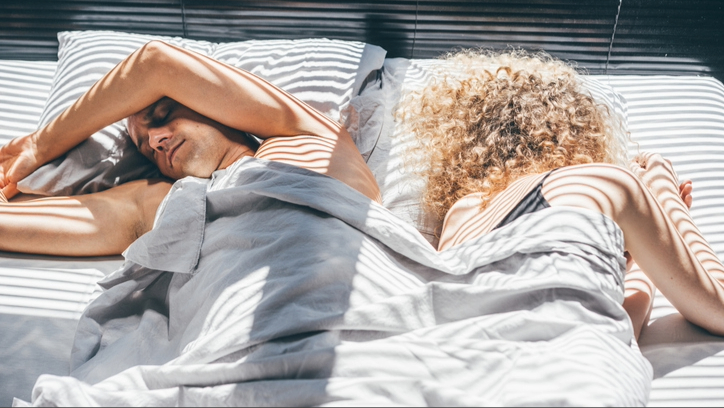The clocks spring forward this weekend — here’s how to fix your sleep schedule, according to a doctor
We ask a doctor how to get better sleep when Daylight Savings Time starts

As the clocks turn 1am this Sunday, they will spring forward to 2am, zapping away an hour of our precious time in bed.
While losing sleep is never really good news, there are ways you can optimize your sleep schedule to minimize the impact of the time change.
While sleeping on the best mattress for your body type is key to getting quality sleep night after night, prioritizing a regular sleep pattern is even more important in maintaining your body clock and regulating your energy levels.
But a time change can throw a spanner in the works here. So, we've asked GP and physician, Dr Ola Otulana, how exactly the clocks springing forward impacts sleep and what we can do to make sure we remain well rested this weekend.
3 ways the clocks going forward will affect your sleep
As one of the key stimulus affecting the circadian rhythm, light significantly influences our sleep.
Our bodies produce the sleep hormone melatonin in response to darkness and suppress melatonin when exposed to light, making us feel more wake.
Evenings get lighter when the clocks go back. Meanwhile, mornings initially get darker than they are now. This can impact your sleep in the following ways...
1. You lose an hour in bed
The time jump as the clocks spring forward means we get one less hour, which for most people means an hour less sleep, especially if you work Sundays or have other responsibilities that don't stop when the clocks change.
The result? A shift in sleep schedule can affect your normal mood, memory, concentration and cognitive performance, says Dr Otulana.
"It can also make people feel groggy and disrupt their natural sleep / wake cycle for a few days," he adds.

2. The darker morning makes it harder to get up
Thanks to our internal body clock and hormone cycles, we naturally wake up in response to daylight.
Just when we thought mornings were getting lighter, giving us more time to enjoy daylight before work, the time change takes away that luxury.
"The key is to not force your body to adapt too quickly"
Dr Ola Otulana
The initial dark mornings when the clocks change can make it harder to get up and out of bed.
Without daylight shining through your bedroom window, your body holds on to melatonin for longer in the morning, making you feel more sleepy and potentially groggy. This might be a good time to invest in one of the best sunrise alarm clocks.
But the good news is that the morning darkness is only short lived at this time of year.
As we head into longer summer days with more daylight hours due to the position of the Earth in relation to the sun, the mornings will be lighter than they ever were before, helping you get out of bed with energy.
3. Your circadian rhythm will need to adjust
The lighter evenings brought by the time change may throw your circadian rhythm off slightly, making it harder to wind down at night as your body doesn't as readily produce melatonin when it is light.

Dr Otulana says the clocks going forward "can briefly throw off the body's internal rhythm" which "can make it harder to fall asleep at the usual time and affect the deeper stages of sleep, where our bodies and minds do the most restorative work."
But he reassures: "Over time the body usually adjusts but this can take several days."
"The key is to not force your body to adapt too quickly as this can lead to increased fatigue," he adds.
How to prepare your sleep for the clocks going forward
1. Prioritize quality sleep now
'Front-loading' your sleep over the next two nights, making sure you get enough restorative deep and REM sleep, will minimize the effect of losing an hour Sunday.
Science shows that sleep quality trumps quantity in helping you feel refreshed, so don't worry about necessarily 'counting the hours'.
If you head into the time change feeling well rested, without sleep debt in the bank, you're less likely to feel the tiring effects of losing an hour in bed on Sunday morning.
Losing an hour of sleep isn't anything to worry about if you usually get consistent good sleep.

2. Establish your nighttime routine
Sticking to a relaxing nighttime routine this weekend will help you get that quality sleep.
This routine should include an activity you find calming, be it reading, journaling, mediation or stretching to promote relaxation and sleep onset.
Plus an effective wind down routine is even more important when the evenings are light as your body won’t wind down as naturally as it does in response to darkness during the winter months.
Your routine may need some fine tuning now the evenings are lighter to induce the production of sleep hormones. You can use sensory cues like calming aromatherapy or music to help the brain wind down regardless of the clock time.
Investing in blackout blinds or a sleep mask, like the SOMO sleep mask, can also help you block out stimulating evening light.
3. Stick to your regular bed and wake up times
Research indicates sleep regularity, which means going to sleep and waking up at the same time each day, is more important than sleep duration for positive health outcomes. Hence, sticking to regular times even when the clocks shift is important.

People who have established a clockwork sleep schedule are most likely to feel the effects of the time change the most as their bodies are most in tune with the rhythm of the 24-hour cycle of the day.
Experts say you should stick to your well-established schedule and your body will naturally shift to the new time frame within a few days. If you're bedtimes are out of whack, check out our guide on how to fix your sleep schedule.
Why do the clocks go forward?
The clocks shift twice a year as a way to save energy resources. In March they change from Greenwich Mean Time to Daylight Saving Time (sometimes called British Summer Time,) and vice versa in October.
Daylight Saving Time is designed to make better use of natural daylight during the longer days of spring and summer.
Moving the clocks forward by one hour means it stays lighter later in the evening, bringing economic, environmental and safety benefits.
Although the lighter evenings may not be great news for people who enjoy an early bedtime, it gives people more time for outdoor activities after work and school.
What's more, businesses can benefit from longer open hours and more custom as people are more likely to go out in the evenings.
The 'spring forward, fall back' time change has been a staple in our calendar for 100 years. Yet many people still struggle to hack their sleep routine around these times in the year to minimize disruption. Hopefully the tips above help.
Sign up to get the BEST of Tom's Guide direct to your inbox.
Get instant access to breaking news, the hottest reviews, great deals and helpful tips.

Eve is a PPA-accredited journalist with an MA in Magazine Journalism from Cardiff University. She is a Sleep Staff Writer at Tom’s Guide and has four years’ experience writing health features and news. She is particularly interested in the relationship between good sleep and overall health. At Tom’s Guide Eve is responsible for coverage and reviews of sleep tech and is our smart and cooling mattress specialist, focussing on brands such as Eight Sleep and Sleep Number. She also covers general mattress reviews, seeks out the best deals to produce tried-and-tested buyer's guides for sleep accessories and enjoys writing in-depth features about sleep health. She has been involved in rigorous testing procedures for mattress reviews in our Sleep Studio and has interviewed experts including sleep doctors and psychologists. When not covering sleep at Tom's Guide, Eve enjoys writing about health and fitness, food and culture.
You must confirm your public display name before commenting
Please logout and then login again, you will then be prompted to enter your display name.
